Synopsis
Between the Yalta and Potsdam conferences, everything changed.
- Programme: Politically
- Series: Postwar
- Episode: 13: From Yalta to Potsdam
- Channel: BBC Radio 15
- Broadcast year: 2025
- History | Cold War
Licence: ERA Licence required
UK only
Staff and students of licensed education establishments only
Cannot be adapted
Add Notes
More clips from Politically
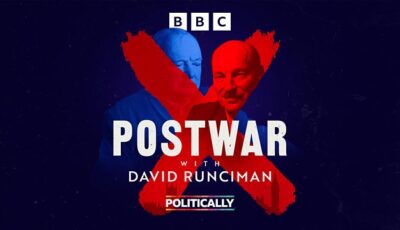
Postwar: 1: The Rejection | Politically
Postwar: 1: The Rejection | Politically
David Runciman tells the story of the 1945 election and the dawn of a new age. Why did Winston Churchill find himself so decisively r...
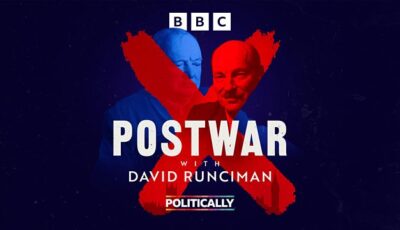
Postwar: E10: India and Empire | Politically
Postwar: E10: India and Empire | Politically
The question of self-government for India would have to be confronted when war was over.

Postwar: E11: Homes for Heroes | Politically
Postwar: E11: Homes for Heroes | Politically
In the end, the election was fought and decided over two main issues: demobilisation and housing.

Postwar: E12: Art, War and Propaganda | Politically
Postwar: E12: Art, War and Propaganda | Politically
With the formation of the Arts Council in 1945, on-going state patronage of the arts began.

Postwar: E14: United Nations | Politically
Postwar: E14: United Nations | Politically
Both main parties supported the United Nations, but they disagreed about what that meant.

Postwar: E15: Debt to America | Politically
Postwar: E15: Debt to America | Politically
In 1945, Britain was the most indebted country in the world.

Postwar: E16: The Result | Politically
Postwar: E16: The Result | Politically
The immediate result of the general election was silence: a three-week hiatus.

Postwar: E17: A New Jerusalem? | Politically
Postwar: E17: A New Jerusalem? | Politically

Postwar: E18: Churchill: Lion in Winter | Politically
Postwar: E18: Churchill: Lion in Winter | Politically
What happened to Winston Churchill in the years after the 1945 general election?

Postwar: E19: Post-postwar | Politically
Postwar: E19: Post-postwar | Politically
When did the postwar period end?

Postwar: E2: Mr Churchill and Mr Attlee | Politically
Postwar: E2: Mr Churchill and Mr Attlee | Politically
With the war in Europe at an end, Churchill and Attlee became fierce election rivals.

Postwar: E20: What if? | Politically
Postwar: E20: What if? | Politically
What would Britain have been like if Winston Churchill had won the 1945 general election?

Postwar: E3: The Beveridge Report | Politically
Postwar: E3: The Beveridge Report | Politically
William Beveridge's plan was an answer to the question of what we were fighting for.

Postwar: E4: Public Opinion | Politically
Postwar: E4: Public Opinion | Politically
How could politicians know what voters were thinking in 1945?

Postwar: E5: The Soldiers' Election | Politically
Postwar: E5: The Soldiers' Election | Politically
During the 1945 election, there were still almost five million servicemen and women.

Postwar: E6: Appealing to Women | Politically
Postwar: E6: Appealing to Women | Politically
How did the election reflect the dramatically changed working lives of women?

Postwar: E7: The Labour Manifesto | Politically
Postwar: E7: The Labour Manifesto | Politically
Uniquely in modern British history, the 1945 Labour Manifesto was a genuine bestseller.

Postwar: E8: Healthcare for All | Politically
Postwar: E8: Healthcare for All | Politically
The war changed many things, and access to healthcare was one of them.

Postwar: E9: Churchill's 'Gestapo' Broadcast | Politically
Postwar: E9: Churchill's 'Gestapo' Broadcast | Politically
Winston Churchill's first election broadcast in 1945 might be remembered as his greatest gaffe.
More resources about The Cold War
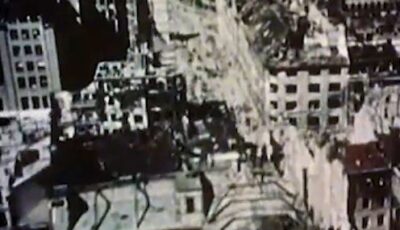
1: Berlin 1945-48 | History File
1: Berlin 1945-48 | History File
Compilation of secondary schools programme about the Cold War, featuring Berlin Crisis, Hungarian Uprising, rise of Soviet leader Nikita Khr...

4: Cuban Missile Crisis 1962 | History File
4: Cuban Missile Crisis 1962 | History File
Compilation of secondary schools programme about the Cold War, featuring Berlin Crisis, Hungarian Uprising, rise of Soviet leader...
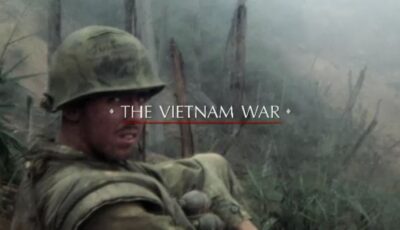
1: Deja Vu (1858-1961) | The Vietnam War
1: Deja Vu (1858-1961) | The Vietnam War
Revolutionaries led by Ho Chi Minh end French colonial occupation. Vietnam is divided in two at Geneva.
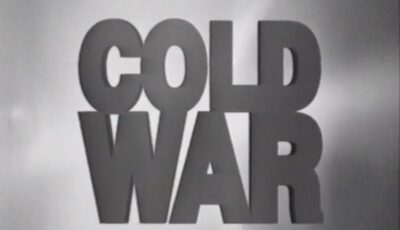
2: Iron Curtain: 1945-1947 | Cold War
2: Iron Curtain: 1945-1947 | Cold War
The wartime allies demobilise - the United States enjoys its economic strength and resurgence while Britain and the rest of Europe is e...

4: Berlin: 1948-1949 | Cold War
4: Berlin: 1948-1949 | Cold War
By 1947, the United States placed as a high priority the revival of the German economy, an approach opposed by the Soviet Union. After the in...

9: The Wall: 1958-1963 | Cold War
9: The Wall: 1958-1963 | Cold War
West Germany, and West Berlin, become more affluent, prompting a surge of East Germans to cross the borders in Berlin, kept open under the ...

12: Mr Kennedy and Mr Khruschev | Twentieth Century History
12: Mr Kennedy and Mr Khruschev | Twentieth Century History
The contest between the United States and the Soviet Union between 1961 and 1963 leading to the Cuban Missile Cri...

14: Red Spring: 1960s | Cold War
14: Red Spring: 1960s | Cold War
Likewise the Soviet Union started the decade with growing openness and optimism. There was also an emerging cohort of youth with no memory o...

3: Hell Come to Earth (January 1964-December 1965) | The Vietnam War
3: Hell Come to Earth (January 1964-December 1965) | The Vietnam War
With South Vietnam in chaos, Hanoi hardliners seize the initiative and send combat troops.

Cold War
Cold War
Both the United States and the Soviet Union drifted apart after the Russian Revolution of 1917, the Russian Civil War and the Paris Peace Conference. Diplomatic and...

22: Star Wars: 1981-1988 | Cold War
22: Star Wars: 1981-1988 | Cold War
Reagan's 1983 ''Evil Empire'' speech sets the tone for a more aggressive US posture against the Soviet Union, and the costly arms race is...

S1E5: The Fall of the Berlin Wall | Days That Shook the World
S1E5: The Fall of the Berlin Wall | Days That Shook the World
Exploring the fall of the Berlin Wall in 1989 from the perspective of a Checkpoint Charlie Stasi guard commander.
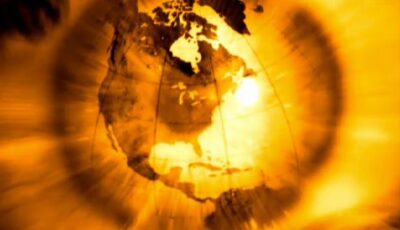
S2E9: Cold War Spies: 1960 U-2 incident | Days That Shook the World
S2E9: Cold War Spies: 1960 U-2 incident | Days That Shook the World
This program focuses on the shooting down of the US U-2 spy plane in 1960.
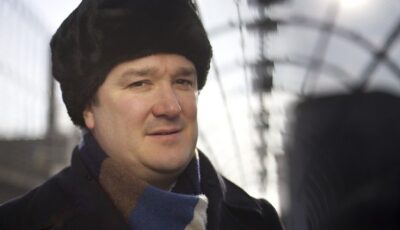
The Looking Glass War | Strange Days: Cold War Britain
The Looking Glass War | Strange Days: Cold War Britain
Dominic Sandbrook examines the Cold War years, looking at the frontline of the conflict as consumerism was pitched aga...
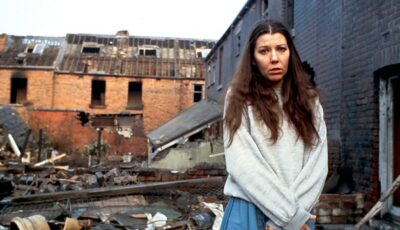
Threads
Threads
Grim drama telling the story of a nuclear strike on Britain through the eyes of two families, tracing the events leading up to the War and the decade of devastation ...

11: Vietnam: 1954-1968 | Cold War
11: Vietnam: 1954-1968 | Cold War
After losing the Battle of Dien Bien Phu the French leave Vietnam. A stream of refugees flee to the south after the Communist north institu...

16: Détente: 1969-1975
16: Détente: 1969-1975
Nixon builds closer relations with China and the USSR, hoping to leverage an honourable US exit from Indochina. The Soviet Union is fearful of a US-C...

2: Hungary 1956 | History File
2: Hungary 1956 | History File
Compilation of secondary schools programme about the Cold War, featuring Berlin Crisis, Hungarian Uprising, rise of Soviet leader Nikita Khrus...

3: Marshall Plan: 1947-1952 | Cold War
3: Marshall Plan: 1947-1952 | Cold War
For both altruistic and self-serving purposes, the United States provides massive grants of aid to the countries of Europe in the form...
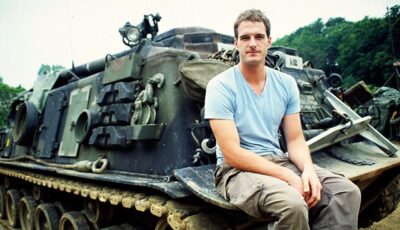
4: 1951 Korea | Peter and Dan Snow: 20th Century Battlefields
4: 1951 Korea | Peter and Dan Snow: 20th Century Battlefields
Peter and Dan Snow, at the border between North and South Korea, tell of two key moments in the years of fighti...
